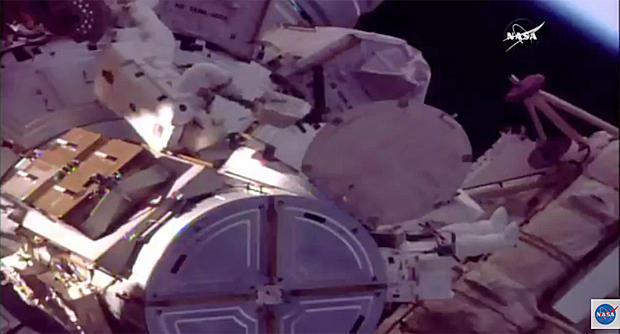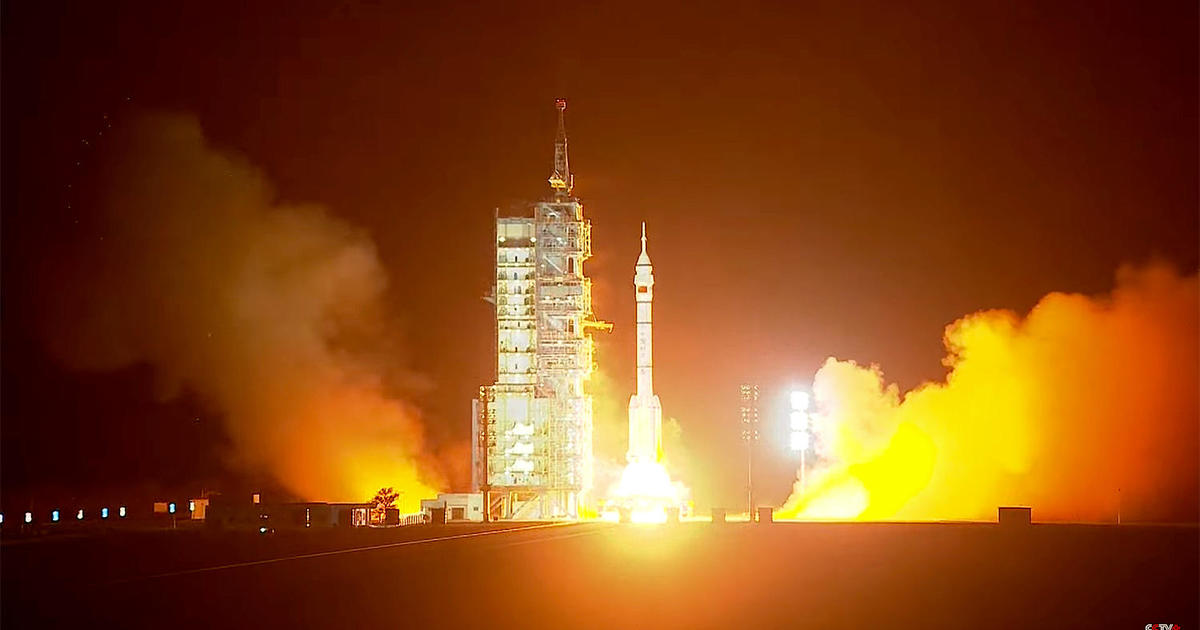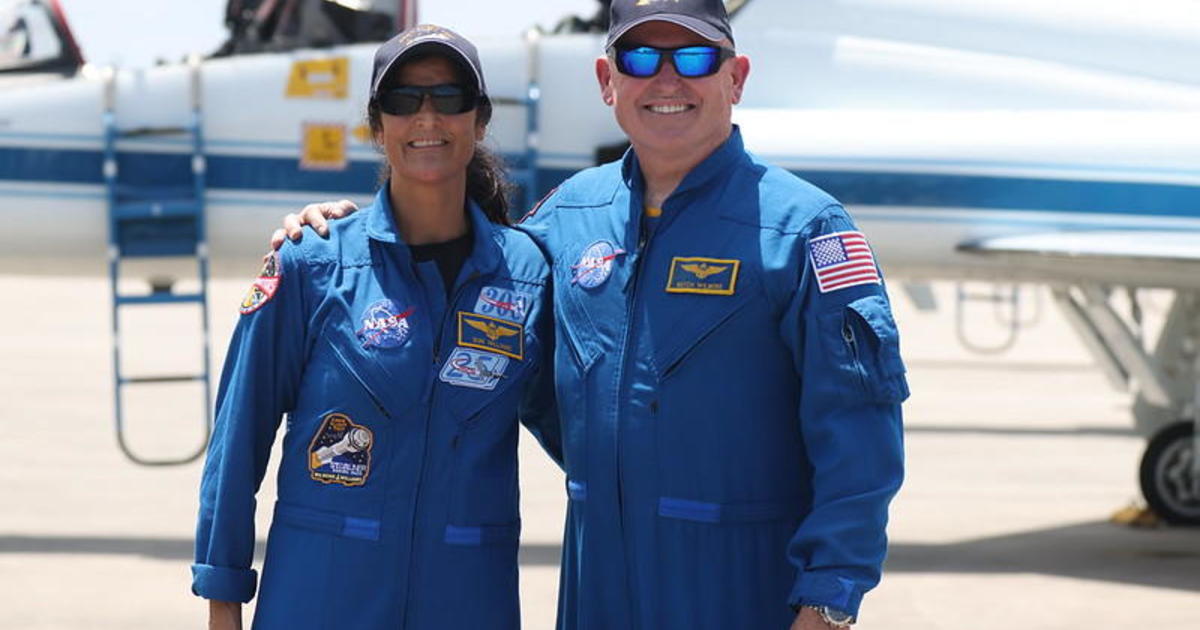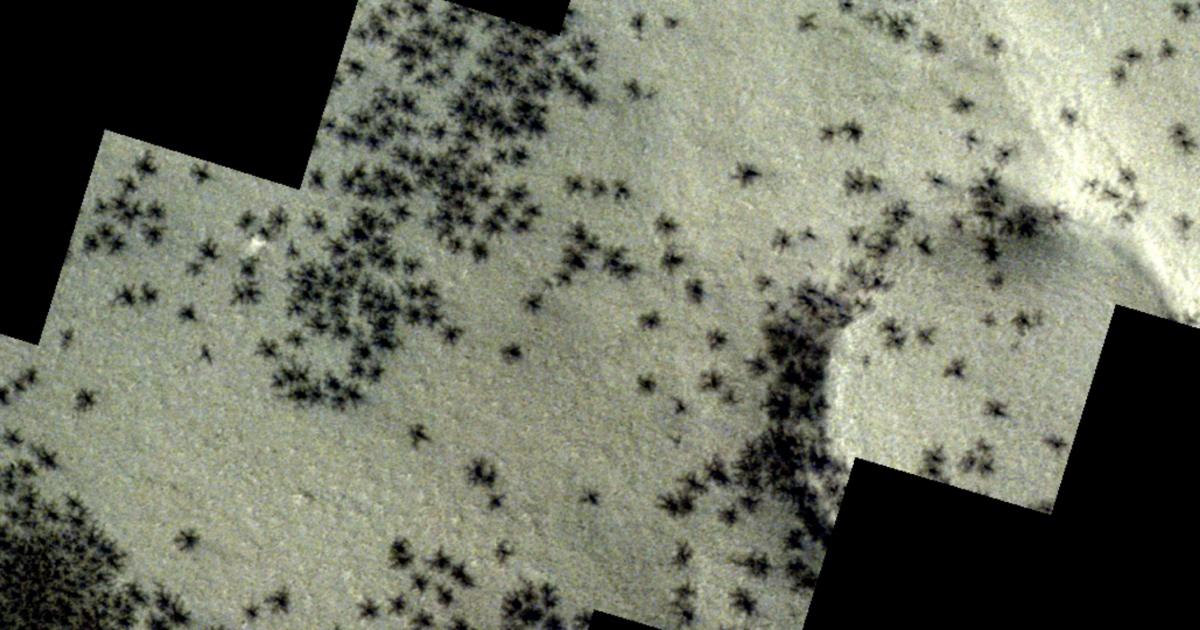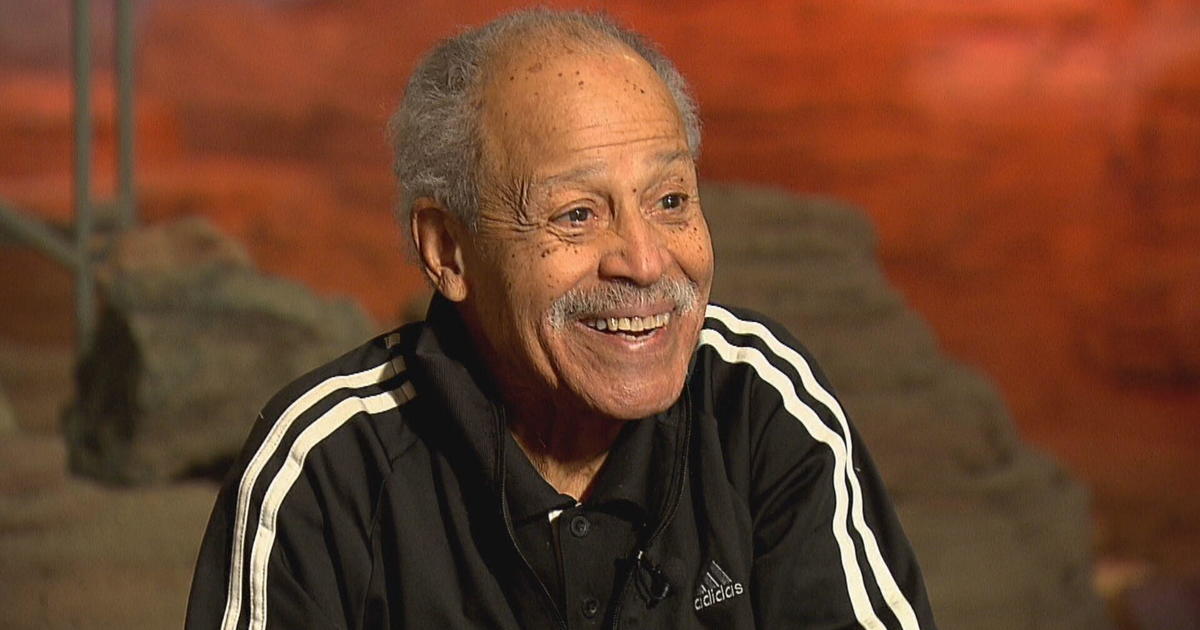Despite problems, spacewalkers complete major tasks
Rookie space station flier Jack Fischer and commander Peggy Whitson, the world's most experienced female spacewalker, carried out an abbreviated four-hour 13-minute spacewalk Friday -- the 200th EVA in station history -- to replace a faulty avionics box on an external storage platform.
Racing the clock through a compressed timeline, the spacewalkers also managed to carry out three other tasks that were initially deferred because of problems that used up spacesuit battery power before the crew exited the airlock. Two other lower-priority jobs were deferred to a future spacewalk, but flight controllers were pleased with the results.
"This is amazing, to be able to do the 200th EVA on board the space station," Whitson said as the excursion ended. "It's a huge honor to work with all of you."
"Today threw us a lot of curve balls," astronaut Kjell Lindgren in mission control told the crew. "We were basically game six, bottom of the ninth, down by three and you guys ... hit a grand slam. So thank you."
Running more than an hour behind schedule, U.S. EVA-42 began at 9:08 a.m. EDT (GMT-4). Whitson, making her ninth spacewalk, and Fischer, making his first, opened the hatch a few moments later and then floated outside to begin an expected four-hour excursion.
"Oh my gosh, this is beautiful!" Fisher exclaimed, taking in the view from 250 miles up.
"Isn't it?" Whitson replied.
"The biggest slice of awesome pie I've ever seen," said Fischer, using one of his favorite words to describe the scene.
"No 'awesome sauce?'" Whitson teased.
"An enormous fondu pot bubbling over with piping hot awesome sauce!" Fischer replied with his usual enthusiasm.
The astronauts originally planned to spend six-and-a-half hours outside the station, but the crew ran into problems when a small water leak was found where an airlock power-and-cooling umbilical attached to Fischer's spacesuit.
The airlock is equipped with two such umbilicals to provide cooling water, power and data while the astronauts are inside the station, preserving the suits' batteries for the actual EVA.
With one umbilical out of action, Whitson and Fischer had to share the remaining power and cooling line, swapping it back and forth periodically. But that meant each astronaut, in turn, had to rely on suit battery power when the umbilical was not attached.
Playing it safe, flight controllers at the Johnson Space Center decided to shorten the spacewalk to four hours and to eliminate all tasks other than the highest priority item, replacement of a 200-pound avionics box on an external logistics platform.
But Whitson and Fischer completed the installation work faster than expected and flight director Greg Whitney cleared Fischer to press ahead with work to repair insulation on a Japanese robot arm.
Whitson was directed to install a "terminator cap" in a circuit used by a high-energy physics experiment -- the Alpha Magnetic Spectrometer -- to help verify a data path that may be used later to help resolve cooling problems.
Flight controllers later decided Fischer had enough remaining battery power -- with a comfortable reserve margin -- to install micrometeoroid shielding on a docking port being prepared for use by commercial crew ferry ships. Two other tasks -- installation of a high-definition camera and a pair of wireless antennas -- were deferred to a future outing.
This was the 200th spacewalk devoted to station assembly and maintenance since construction began in 1998, the fifth so far this year, the first for Fischer and the ninth for Whitson, who is working through her third long-duration stay aboard the laboratory, her second stint as commander.
Going into today's spacewalk, Whitson had logged a cumulative 53 hours and 22 minutes of EVA time over eight previous outings, putting her fifth on the list of most experienced spacewalkers and No. 1 among females with EVA experience.
With a full-duration 6.5-hour spacewalk, Whitson would have moved up to third in the world with nearly 60 hours of EVA time. But today's EVA ran just four hours and 13 minutes, leaving her at No. 5 with a total time of 57 hours and 35 minutes, just 20 minutes shy of the mark set by Jerry Ross at the No. 4 spot.
At the Kennedy Space Center, meanwhile, SpaceX is continuing preparations to launch an Inmarsat communications satellite Monday from historic pad 39A. Assuming that flight goes well Monday, the California rocket builder should be clear to press ahead with launch of a station-bound Dragon cargo ship on June 1.
One day later, Soyuz MS-03 commander Oleg Novitskiy and European Space Agency astronaut Thomas Pesquet plan to return to Earth, landing on the steppe of Kazakhstan to close out a 196-day mission. The Dragon supply ship is scheduled to arrive June 4.
Novitskiy and Pesquet blasted off with Whitson last November 17, but her mission was recently extended and she now plans to remain in orbit until Sept. 3, joining Fischer and Soyuz MS-04 commander Fyodor Yurchikhin for the ride home. Yurchikhin and Fischer launched April 20 with an empty seat, part of a Russian effort to reduce costs.
With landing Sept. 3, Whitson's total time in space over three missions will stand at 666 days, moving her up to eighth in the world, just behind Yurchikhin at No. 7 with 673 days in orbit and six other cosmonauts. Gennady Padalka, with 878 days over five flights, tops the list.
